Interview With Nicola Mendenhall
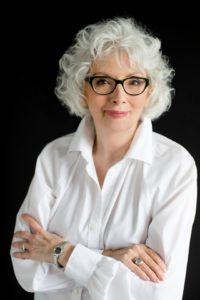 I have spent countless hours “on the couch.” Therapy has saved my life on so many levels, so many times, that I can’t even imagine what my life would look like had I not had therapists to listen, challenge, and guide me as I’ve traveled this path called life. Nicola Mendenhall, an amazing woman I met in an online Mastermind, has been in psychoanalysis for the last decade, literally lying down on her analyst’s couch several times a week. The personal gains she’s made as a participant in this process have been so positively impactful that she has felt compelled to write a memoir about it: “What’s happened for me, it just felt like it was too big not to share.”
I have spent countless hours “on the couch.” Therapy has saved my life on so many levels, so many times, that I can’t even imagine what my life would look like had I not had therapists to listen, challenge, and guide me as I’ve traveled this path called life. Nicola Mendenhall, an amazing woman I met in an online Mastermind, has been in psychoanalysis for the last decade, literally lying down on her analyst’s couch several times a week. The personal gains she’s made as a participant in this process have been so positively impactful that she has felt compelled to write a memoir about it: “What’s happened for me, it just felt like it was too big not to share.”
Nicky and I spoke just last month, and it was an absolute joy! She’s open, honest, and willing to go deep—even if it is a little scary! I hope you enjoy reading this interview as much as I did speaking with Nicky. She is truly an inspiration!
You can sign up for Nicky’s blog at NickyMendenhall.com and follow her on Instagram at nickymendenhallwriter, on FB nickymendenhallwriter, and on twitter at nickymendenhall.
Diane: Good morning!
Nicky: Good morning, Diane.
Diane: Where are you? In Iowa?
Nicky: I’m in Iowa-
Diane: I have to ask you, is it … democratic-presidential-candidate-crazy-time there right now? Or is that just what we’re hearing on the news?
Nicky: I haven’t seen too much of it because I don’t get out a lot in those kinds of places. But I’ve been following Marianne Williamson on Instagram and email. She’s been in Iowa a lot.
Diane: Really?
Nicky: I haven’t actually seen her, but …
Diane: Okay. Because she’s dropped off the map around here.
Nicky: Has she really? Oh, I’m sorry to hear that.
Diane: In coverage, yeah. But she’s an interesting lady.
Nicky: Yeah.
Diane: That’s for sure. So are you! Let’s get to you now. We met about, I would say, a year and a half ago, maybe, right?
Nicky: I think that’s right.
Diane: In a Mastermind with Dan Blank. Tell me why you started. What was going on for you that you wanted to accomplish?
“All of a sudden, I had trouble walking … my physical life was just going crazy. I finally found out that I had was called normal pressure hydrocephalus”
Nicky: Well, I had surgery for … I don’t know where to start exactly. I was working, I was a psychotherapist. All of a sudden, I had trouble walking, and I had some incontinence. My physical life was just going crazy. I finally found out that I had was called normal pressure hydrocephalus. I’d never heard of that before. Medical experts said there was a procedure. I thought, why don’t they just call it surgery? But they said it’s a “procedure.” The neurosurgeon installs a shunt in your brain with a tube that drains excess cerebral spinal fluid to your abdomen. 40% of the time, the operation works. Sometimes it doesn’t.
I decided that I was going to do the operation. It was not an easy decision.
Diane: Oh, my god. It must’ve been terrifying.
Nicky: It was. Very. It was horrible. I almost decided I’d rather die. But I did the operation, and I’m one of the lucky ones. I’m back to normal.
Diane: That’s wonderful.
“I’ve always said I’m never going to write a book. It’s too much work, it’s too hard”
Nicky: It is. But during the process of deciding whether to do the surgery, and I didn’t know if it was going to be successful or not, I decided to close my office, my family therapy and psychotherapy practice. I sold all the furniture and shut it down because I … I think because I wanted to have control over something.
Diane: Yeah.
Nicky: Then after surgery there was of course a recovery period, which lasted several months. I wanted to do something. I didn’t have my practice anymore. I loved working with clients. I just didn’t know what to do, so I found Dan Blank’s Mastermind. I signed up in January. It was so exciting to be with other creatives and work with Dan that I just signing up for the entire year!
Diane: You went in there thinking I just need some direction?
Nicky: I did, that’s right. I didn’t know … I’ve always said I’m never going to write a book. It’s too much work, it’s too hard.
Diane: You said it.
Nicky: I’d never write a book.
Diane: But never say never-
Nicky: That’s right.
Diane: Because you did write a book.
Nicky: Well, I am writing a book.
Diane: You are writing a book, okay. Tell us about this book because it’s fascinating to me.
“I was successful in my practice. I had good family relationships. Things were good. But I felt like the anxiety that I was feeling was over the top somehow… I wondered if a deeper therapy would help me”
 Nicky: I began in Freudian psychoanalysis in October of 2007.
Nicky: I began in Freudian psychoanalysis in October of 2007.
Diane: Okay. What made you do that?
Nicky: That’s a good question. I was successful in my practice. I had good family relationships. Things were good. But I felt like the anxiety that I was feeling was over the top somehow. It was interfering with my pleasure in life. I wondered if a deeper therapy would help me. And I had always been fascinated by Freudian psychoanalysis. I didn’t really like Freud, but the idea of meeting with someone several times a week and really getting down to my inner self was very fascinating.
Diane: Your deepest and darkest, right? Can I backtrack just a little bit?
Nicky: Yes.
Diane: You had a psychotherapy practice. What is your training? What is your degree in?
Nicky: My degree is in social work. I have a masters in social work.
Diane: Me too. Had you been in other kinds of therapy before?
“The experience was like nothing I’d ever done before”
Nicky: Yes, I worked with a Bowen family systems therapist, as part of the training. That was very helpful. And I did some spiritual direction.
All that was good, but I just felt like life could be better … I wanted to know more somehow.
Diane: Yeah, okay. So, you started in psychoanalysis. Was it three times a week, or two times a week?
Nicky: It was three times a week for a long time. Then she kept saying, “Yeah, we could get more done if we met another time a week.” I thought, there’s no way I’m going to do that. But it was so intriguing to me to think about, well, what could happen? I found another time, so we met four times a week.
Diane: You lied down on the couch, the whole nine yards?
Nicky: That’s exactly right.
Diane: Wow. I did that for a little bit. I went to a therapist years ago, who had psychoanalytic training. Then she asked me if I would want to do that. It was very interesting. Tell me more about the experience and why you wanted to document that in a memoir.
Nicky: Well, the experience was like nothing I’d ever done before. I’m a two on the Enneagram, which, I don’t know if you know Enneagrams-
Diane: No.
Nicky: This means I’m the helper. You know social work, how we like to help people?
“When I was in therapy before, or in spiritual direction, anybody I work with, or talk to, or have relationship with, they’d agree with me … this analyst, she didn’t do any of that”
Diane: Okay. And that’s a two on the what?
Nicky: Oh, Enneagram E-N-N-E-A-G-R-A-M.
Diane: Okay. I’ve heard of that. What is that?
Nicky: People are divided into nine different types.
Diane: Okay. And you’re a helper?
Nicky: I’m the helper type.
Diane: Okay. How was it to be the one receiving the help?
Nicky: Well, I didn’t handle it very well at all. I asked for help, but then I didn’t want to listen.
My analyst … I think she’s very good at what she does. When I was in therapy before, or in spiritual direction, anybody I’d work with, or talk to, or have relationship with, they’d agree with me, usually. And assure me, and compliment me. I thought I was just the nicest person because that’s the feedback I always got. Then this analyst didn’t do any of that. She didn’t affirm me, she didn’t agree with me. She had an idea about who I was and how I dealt with life. We ended up calling it “being above it all.”
Diane: Above it all. Interesting. What does that mean to you?
Nicky: It means it keeps me out of the fray of being human. I think the first time I ever did the “above it all” thing was when I was 18 and I decided to get married. I knew everything.
Diane: I think most 18-year-olds know everything. You were even more extreme?
Nicky: I was even more extreme.
I think being above it all means that I don’t listen to anybody, or I haven’t in the past. Because I know everything.
Oh, that sounds so bad.
“With the analyst, I didn’t get by with anything … she would just confront me on my behavior, in a very wise way, through her interpretations. It was like, after a while, I was facing myself”
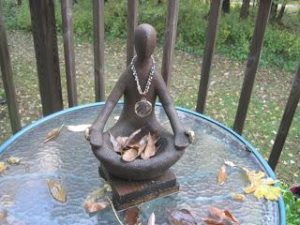 Diane: You know what? It sounds honest. How did psychoanalysis change that? Or has it?
Diane: You know what? It sounds honest. How did psychoanalysis change that? Or has it?
Nicky: Yeah. I hope. With the analyst, I didn’t get by with anything … she would just confront me on my behavior, in a very wise way, through her interpretations. It was like, after a while, I was facing myself. I couldn’t blame her because I could feel it inside of myself, how I was being above it all, how I wasn’t feeling my pain. I wasn’t feeling my feelings. I could feel it in myself. It was just such an amazing thing, how she did this.
I thought, I’ve got to write about this. I thought, people need to know this. It’s like my mission. People need to know this is a possibility, that you can have things about yourself that you don’t even know, and that you can find out what they are.
Diane: Yes. Are you still in psychoanalysis?
Nicky: Yes.
Diane: What’s the book-writing journey been like?
Nicky: When I was in Mastermind, I met Barbara Boyd, who was a book coach. I don’t know if she was in there when you were doing it?
Diane: Yes, yes. That’s the time I did it, yes.
Nicky: Okay, good. Anyway, every time Barbara would respond to something I wrote, I thought, man, she is right on. When I decided to write a book, I hired her to be my book coach. I don’t know if I would be as far as I am without her. She has a psychological mind herself. So she could prompt me for where I needed to go more into depth on things. We worked for a little over a year together.
Diane: Wow.
Nicky: Yeah.
Diane: Are you still working with her?
Nicky: No. I’m still in contact with her. She wants to stay in touch, which I’m so glad about.
Diane: Of course, she would. Yes, I remember, she was lovely.
Nicky: Really lovely.
“She said we needed to find a controlling metaphor. So, we’re working on that. I think right now, it would probably be something about sight … how did psychoanalysis help me see clearly?”
Diane: For people who may have a story that they want to share, but don’t consider themselves “writers” can you talk about how a book coach can be helpful?
Nicky: Well, I would write a chapter and send it to her. Then she would make comments on it and send it back. Then I would redo it. Back and forth, back and forth, until I got a chapter that was pretty good. Then I would have another insight to go to the next chapter. She just would follow my lead. But she was always there with an idea.
Diane: Sort of a collaboration in some ways?
Nicky: Yeah. I think that’s a good word.
Diane: Now, the book is finished for the most part?
Nicky: I thought it was.
But I found through some friends of mine a woman here in town who has a press, Zion press. The owner is a former writing teacher and now an editor and publisher, just an incredible woman. She’s in her 80s, which is amazing to me.
Diane: Woo-hoo!
Nicky: I sent her some of my work, some of the book. Oh, boy. She said we needed to find a controlling metaphor.
Diane: To use throughout the work?
Nicky: Yes. So, we’re working on that. I think right now, it would probably be something about sight … how did psychoanalysis help me see clearly?
Diane: Got it.
“In the past, I always said, “Oh, that’s too hard, I quit.” Because of psychoanalysis, I don’t want to do that anymore”
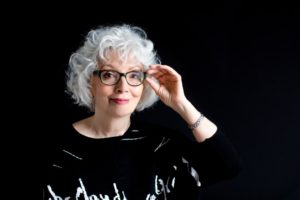 Nicky: We’ve gone through all 17 chapters. I just finished reading all of her corrections. There’s just so much work left to do.
Nicky: We’ve gone through all 17 chapters. I just finished reading all of her corrections. There’s just so much work left to do.
Diane: Yes. It feels never ending, right?
Nicky: It does right now.
She wants some vignettes. I think that would make the book a lot better. I’m learning to write vignettes. In the past, I always said, “Oh, that’s too hard, I quit.” Because of psychoanalysis, I don’t want to do that anymore.
Diane: Do you mind if I ask your age?
Nicky: I’m 74.
Diane: 74. So, you started psychoanalysis when you were how old?
Nicky: Well, I would’ve been about 63 or something like that, 62.
Diane: 63 or 62. Wow. Talk about self-discovery, right?
Nicky: Yeah.
Diane: It’s never too late.
Nicky: That’s right. I don’t think so.
Diane: I think life is a journey of self-discovery. We’re ready to do different levels of it at different stages. Would you say that psychoanalysis was the major turning point for you in your life?
Nicky: Yes.
“At 50, I think I started to take myself more seriously”
Diane: Wow. That’s really powerful. Let me ask you another thing. Did you feel that the 50s, that decade, was that another major milestone in how you saw your life? A different way of looking at things or being in the world? Does that resonate with you at all?
Nicky: That resonates a lot with me. I’m seeing a picture I have of myself at my 50th birthday party that I threw for myself. Actually, I had two 50th birthday parties.
Diane: Good for you.
Nicky: One for my women friends, and one for my husband and a couple friends. I was married to my first husband at the time. At 50, I think I started to take myself more seriously, and knew that the marriage needed some work. I think at 50, I felt more myself.
There was something about that milestone of 50.
Diane: Coming into yourself, right?
Nicky: Yes.
Diane: This image just came to me. You know how puppies that have big feet?
Nicky: Yes.
Diane: And they have to grow into their feet? It’s almost like we grow into who we are, I think.
Nicky: Yeah, I think that’s right.
Diane: You got divorced shortly after?
Nicky: Oh, it took a long time to get divorced. I got divorced in 1998.
Diane: How old were you then? 50 something, right?
Nicky: Let me think … I was 53. Yes. That really feels weird. I didn’t know I was that young. That makes sense though, because I was single then for 10 years.
“I wanted what I learned to call the oceanic feeling, the merging with someone else”
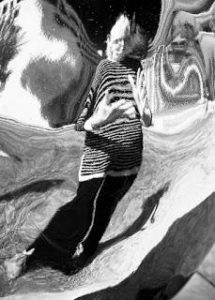 Diane: Wow.
Diane: Wow.
Nicky: That makes perfect sense.
Diane: What was divorce like in your 50s? And then being on your own?
Nicky: Well, I had enough money to buy a town home. I liked living by myself, but I had … this is part of the memoir too. I wanted what I learned to call the oceanic feeling, the merging with someone else.
Diane: Yes, yeah.
Nicky: I was looking for that when I was single. I dated quite a few men. I just didn’t find it. I guess it was at the end of that period when I began psychoanalysis.
Diane: When did you meet your current husband? You’re married, right? Now?
Nicky: I’m married, yes.
Diane: When did you meet your current husband?
Nicky: He was my high school sweetheart.
Diane: Oh. That’s cute. Had you kept in touch the whole time?
“Some of the time, I would get into my whole pattern and want him to be different. Then I would talk about it in analysis, and I’d learn that this isn’t what I want to do”
Nicky: No. He married another woman in our class. When I saw that she had died, I sent him a note because I wanted to express my sympathy to him. I wanted to acknowledge that. Then he contacted me. That was a week before I started psychoanalysis, I remember telling him that I had an appointment the week after we had our first lunch after 40+ years. He’s never known me without being in psychoanalysis.
Diane: Do you think being in psychoanalysis has helped you to have a more meaningful relationship?
Nicky: Totally. Some of the times, after the first few years of our marriage, I would get into my whole pattern and want him to be different. Then I would talk about it in analysis, and I’d learn that this isn’t what I want to do.
Diane: That’s great, that really is. Let me ask you another question. How did your adult children feel about you dating again and getting married?
Nicky: The dating part, I don’t know. I have three sons. What comes to mind, is a funny thing, I told my younger son that I was dating this guy. He said, “What kind of car does he drive?” I said, “Well, he drives a van.” He said, “Does he have windows in it?” I said, “No.” He said, “You watch out for him.”
Diane: That’s funny.
So, they were protective of you?
Nicky: Yes, they were protective. Then when we got married, we did a lot of things to get everybody together. I think they all really liked my new husband. So far, it’s worked really well.
Diane: Good, that’s wonderful. You have grandchildren?
Nicky: Yes, I have four grandchildren.
Diane: Four grandchildren. What’s that like?
Nicky: Well, the oldest one just got married in September.
Diane: Wow, I remember that. Wonderful.
Nicky: The wedding and dance was really fun.
“I think that’s part of wanting to write. What’s happened for me, it just felt like it was too big not to share”
 Diane: That’s wonderful. You’ve been writing a blog for quite some time. How many years?
Diane: That’s wonderful. You’ve been writing a blog for quite some time. How many years?
Nicky: Since 2012.
Diane: What made you decide to write a blog?
Nicky: Before that, I wrote an email newsletter. I called it Living Out Loud. But then, I heard about blogs and I thought, that would be fun to talk to people through a blog. I think maybe I’m more of a writer than what I have admitted to myself.
Diane: It seems like it. Very interesting how much growth you’ve had in really the past decade or so, right?
Nicky: That’s right.
Diane: How exciting is that?
Nicky: I think that’s part of wanting to write. What’s happened for me, it just felt like it was too big not to share.
Diane: Yeah, that’s wonderful. What are the plans now? This woman has agreed to publish the book, or is this still in-
Nicky: Yes, I think she will. But we have to get it into shape.
Diane: Right.
Nicky: She said yesterday that most authors go one or two ways. They work too hard and make themselves crazy, or they don’t work hard enough and they publish a book that is-
Diane: Before it’s ready.
Nicky: Yes. So, how to find that balance.
Diane: You don’t have a date or anything, or do you?
Nicky: No, I don’t.
“My mother died when she was 75 … I would really like to have this book done by my birthday, which is in October, when I turn 75”
Diane: Are you just leaving that up in the air, or do you have your own goal for that?
Nicky: Well, I had never even said this out loud before, but my mother died when she was 75.
Diane: Wow.
Nicky: I think I would really like to have this book done by my birthday, which is in October, when I turn 75.
Diane: Wow.
Nicky: That’s not that long from now.
Diane: It’s not. I’m working on a book and I’m going on two years. It’s nowhere near any kind of book shape. People are like, “What? Just write the damn thing already.” But it’s really a process that, had I known before I started, well, I probably still would’ve done it. But it’s one of those, had-I-known-before-I-stared things. Life is full of those, right?
Nicky: Yeah, it is.
Diane: Do you have any other plans? When this book is done, with all the growth you’ve had, anything else in the future? I know you’re working on a website now.
Nicky: I’m working on a website. Like I said, I’m still in psychoanalysis. I’m not sure if this is still true after I read everything on my first go around. But I was thinking that maybe there’d be another memoir after this because I’ve started the termination process.
“Now that I’m in the termination process, it’s like there’s a whole other layer of things now coming out”
Diane: You have? Wow.
Nicky: Yeah.
Diane: That’s intense.
Nicky: And now that I’m in the termination process, it’s like there’s a whole other layer of things now coming out now.
Diane: So, the juicy stuff decides to come out now, right?
Nicky: Of course.
Diane: That’s how it works.
Nicky: You got it.
Diane: What do you envision the second memoir being about?
Nicky: Well, I don’t know yet because I haven’t experienced it.
Diane: But you feel like there’s something there?
Nicky: Yeah. It feels like I’m in another place now than when I was when I ended this memoir. When you write a book and you look back, it’s like that’s your former self.
Diane: Isn’t that fascinating?
Nicky: Yeah. It’s like, that’s not me anymore. All this being above it all, and how I interacted with the analyst. That’s not how it is now.
I want to write about how it is now, I guess.
“Being in analysis for a decade … teaches you how long it takes to really make changes in long standing patterns”
Diane: That’s very exciting. You can do both at the same time. I don’t know if you double dip. Do you ever have more than one project going at the same time?
Nicky: You mean work on this new one-
Diane: While you’re working on the other one, yeah.
Nicky: Yeah. I think I’ve started, though I’ve been a little hesitant. But you’re saying it’s a good thing to work on more than one thing?
Diane: That’s a very individual thing. I always have more than one thing going, but a lot of people feel like they can’t. They feel like that’s too confusing. It’s just really a personal choice, I think.
Nicky: Well, I started working on it, I guess, in the fact that I take notes after every session.
Diane: That’s great. It’ll be interesting to look back on those too, you know?
Nicky: Yeah.
Diane: Nicky, do you have anything else you want to share, or that you feel we’ve left out?
Nicky: Well, let me just think a minute. I guess the idea about how hard it is to change.
Diane: Say a little bit more about that.
Nicky: Being in analysis for a decade and going over and over the same issues teaches you how long it takes to really make changes in long standing patterns.
For example, the other night, I woke up and I suddenly knew the reason I don’t like to drive very much anymore. It is because of my whole idea about being comfortable. I’ve learned that what I want, at least in the past, more than anything was to be comfortable.
“I look at my behavior and ask myself if I’m wanting to be comfortable. Is that why I’m not doing this?”
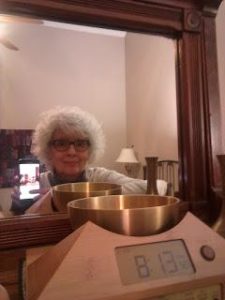 Diane: Right, right.
Diane: Right, right.
Nicky: Any kind of change or growth is not comfortable.
Diane: That’s true.
Nicky: Just knowing that, I look at my behavior and ask myself if I’m wanting to be comfortable. Is that why I’m not doing this? But you just don’t change those things in an instant. I want to change it right away. I want to have it done. I want to know it, and for it to change. But it doesn’t work like that.
Diane: And you want it to be easy, right?
Nicky: I want it to be easy.
Diane: I’ve written quite a bit about this in the blogs. There’s a book that I love, an old book but an oldy-but-goody called Feel the Fear and Do it Anyway. It’s almost as if fear is a message that we’re really onto something good.
If there’s something new, exciting, and if we’re a little afraid of it, it’s like wow, this is going to be powerful. I work with a speaker coach. She likes to change the wording. Instead of discomfort, think of it as “feeling sensations.” She suggests we don’t label it with that negative spin but use the word “sensation” instead.
I often hear that when people get older, they’re less willing to step out of their comfort zones and take that step. But I really think that’s just a bum rap older people have gotten.
I keep coming back to that 50 mark. But by 50 or older, we’ve lived long enough to know that most things don’t kill you. You survive. You’ll be okay if you try something new, and maybe it’ll be wonderful. I think more and more, we’re taking important risks as we grow older.
“My answer in the past was always it will be a disaster. Now, I am so much clearer … I may not like the outcome, but it’s not going to be a disaster”
Nicky: That reminds me of something I worked on in analysis, the question of what will happen if you do that?
My answer in the past was always it will be a disaster. Now, I am so much clearer that it’s not going to be a disaster.
I may not like the outcome, but it’s not going to be a disaster. I can handle most anything.
Diane: Isn’t that wonderful? It’s so freeing. It’s really coming into your own, knowing that you’re more able than you might have thought in the past.
Nicky: Yes.
Diane: Yes. That’s wonderful.
Nicky: When you said fear is a message, I thought about when I first went to analysis. One of the things I initially said was, “I have too many fears.” Like my fear of driving, fear of mice, fear of … I hadn’t thought about it as a way to get me there, that I was onto something good. So, thank you for that. That’s really good.
Diane: Thank you for bringing it up, the difficulty of change. This has been wonderful. We have just communicated in the past through email, but it’s been wonderful to speak with you over the phone.
Nicky: Oh, it has.
Diane: I’m excited that you are bringing WomanPause into the new year!
As always, I’d love to hear your thoughts. Please leave a comment or send me an email!
Happy New Year everyone! Wishing you all good things, always, and see you January 17th!
Diane



I was so absorbed in this fascinating conversation that I forgot to drink my coffee! That rarely happens 😉 There is so much to love & learn here. At the age of fifty-six, it made me smile when I read “I was 53…I didn’t know I was that young.” One message that shines through is that there is so much to look forward to post 50.
Writing a book is indeed a process. I always remind myself of authors who took a very long time completing their books; for example, Angela’s Ashes by Frank McCourt. It’s interesting and comforting that there are different paths to writing and publishing a book.
I’d always written off psychoanalysis because of some of Freud’s problematic ideas, but I can no longer do that. I’m looking forward to reading Nicola’s blog & rooting for her to finish her book by her October deadline.
As always, a massive thank you, Diane, for your blogs- the gift that keeps on giving :))
As always, Sarita, a massive thank you for your thoughtful comments!
I am rooting for Nicky too!
Hi, Nicky and Diane!
What good Mastermind classes we’ve had with Dan Blank and We Grow Media. I’ve enjoyed reading this excellent interview, Diane. Nicky is forthcoming and generous. I didn’t realize that both of you had social work degrees–some of the best people! I’m glad to learn that Nicky used Barbara Boyd as an editor. The networking we do pays off.
Yes, it was, Greta! I love to see the networking fruits–it’s all about being there for each other and supporting each other’s growth!
Greta,
So good to hear from you. Your encouragement in MM was key to my writing career!
Diane that was fascinating. This resonated with a lot of the work I was able to explore when I was younger, BC (before children) I love Marianne Williamson and just pulled it out the other day to give to my son.
Good to hear from you, Paula! Glad you found Nicky and the interview interesting! Love “BC (before children)! That does seem like ages ago, doesn’t it?